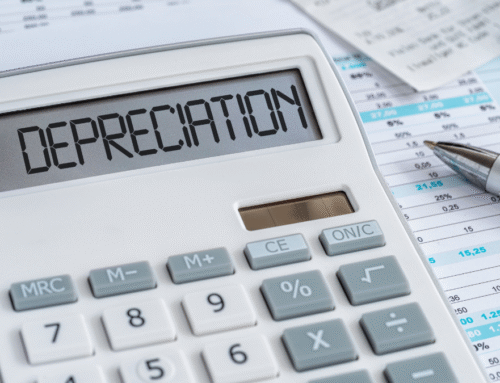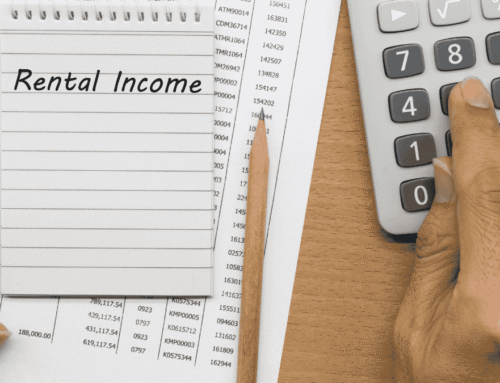USA Property Investment for Foreign Buyers [2025 Guide]
The Ultimate Guide to USA Property Investment for Foreign Buyers
Investing in U.S. real estate as a non‑resident might seem complex, but it’s more accessible than many expect. In 2025, foreign buyers invested over $56 billion in U.S. residential properties, purchasing 78,100 homes. I’ve personally purchased over 120 rental properties in the United States as a Non-Resident Foreigner. Today, part of my business involves helping other non-residents from all over the world invest in their own properties in the USA safely and remotely. In this guide to USA property investment for non-residents, I’ll cover everything you need to know to invest safely and profitably.
Key Takeaways
- ✅ No ownership barriers: Non‑US citizens can freely invest in property in the U.S.
- ✅ Plan for 25–40% down: International buyers face higher down‑payments
- ✅ Account for extra costs: Expect closing costs of 3 to 6%
- ✅ Set up for Success: Use the most appropriate investment structure for your circumstances
- ✅ Tax planning is vital: Navigating U.S. taxes for non-residents can be tricky
- ✅ Work with experts: Real‑estate attorney, agent, and lender experienced with foreign buyers are essential partners.
Investment Properties: Browse Turnkey Rental Properties For Sale in Our Online Portal
Table of Contents
- 1. Can Foreigners Invest in U.S. Property?
- 2. How Much Cash Do You Need?
- 3. Financing Options
- 4. Protecting Your Investment
- 5. Tax Considerations
- 6. U.S. Property Investment Roadmap
- 7. Common Pitfalls
- 8. Why Now Might Be the Time
- FAQs
1. Can Foreigners Invest in U.S. Property?
Yes, foreign nationals can own any type of U.S. property, whether residential, commercial, or land. There are no nationality-based ownership restrictions at the Federal level. That said, there are some restrictions on the ownership of agricultural land for some nationalities at the state level. Make sure you check local state laws on foreign ownership in the markets you want to invest in.
2. How Much Cash Do You Need?
How much cash you need for your USA property investment will of course depend on the price of the property, and whether or not you’re going to use financing. Personally, I invest in the suburbs of secondary markets in the Midwest and South. That’s where I find the best balance of affordability, cashflow, and price appreciation.
If you’re buying with a mortgage, you’ll need a down payment and closing costs. Then you’ll need to account for some ongoing monthly and annual costs once you own the property. Here’s a breakdown:
| Item | Estimate |
|---|---|
| Down payment | 25 to 40% |
| Closing costs | 3 to 6% |
| Ongoing costs | Property tax, insurance, property management, reserve funds, income tax |
USA Property Investment Purchase and Ownership Costs
As a guideline, I recently helped one of my overseas clients invest in this 3-bedroom single family rental property in Cleveland, Ohio. Here’s a breakdown of the purchase costs, and ongoing costs.
USA Property Investment Purchase Costs
| Item | Amount (USD) |
|---|---|
| Purchase Price | $135,000 |
| Down Payment (25%) | $33,750 |
| Closing Costs | $4,050 |
| Mortgage Fees | $3,543 |
| Total Cash Required | $41,434 |
USA Property Investment Ownership Costs
| Item | Monthly Amount (USD) |
|---|---|
| Gross Rental Income | $1,500 |
| Property Management | $150 |
| Property Taxes | $104 |
| Insurance | $63 |
| Maintenance Reserve | $150 |
| Mortgage Payments | $708 |
| NET Monthly Cashflow | $325 |
While this is a good example, the purchase costs and ongoing costs can vary considerably. Each U.S. state has different closing costs, property taxes, and insurance costs. Make sure you underwrite your deal accurately, using up to date information and realistic assumptions for all of your costs.
There are lots of online tools and resources that can help you to accurately analyse a potential investment property in the USA. Personally, I like the DealCheck App. You can simply enter the property address, and the platform will pull up to date information directly for the Multiple listing system (MLS).
Need Help With Your U.S. Property Investment? Book a Free 1-on-1 Strategy Call With Me or My Team
3. Financing Options For Your USA Real Estate Investment
There are lots of financing and mortgage options for foreigners who want to invest in U.S. property. I’ve used private money loans and DSCR loans to purchase and/or refinance all of my own rental properties in the U.S. The terms vary considerably based on the type of loan, borrower profile, and specific of the property purchase. Here’s a quick reference guide:
| Loan Type | Down Payment | Interest Rates | Suitable For | Ideal Use Case |
|---|---|---|---|---|
| Foreign National Loan | 25 to 30% | 7.5 to 8% | Foreign nationals with good credit and verifiable foreign income | Vacation homes and rental properties |
| ITIN Loan | 25 to 30% | 7.25 to 7.75% | Non-Residents with an ITIN number and verifiable U.S. income and tax returns | Vacation homes and rental properties |
| DSCR Loan | 25 to 30% | 7.25 to 8.5% | Non-Residents buying U.S. rental properties | Rental properties |
| Hard/Private Money Loan | 10 to 20% | 10 to 15% | Real estate investors | Short term house flipping or bridging finance |
The type of financing you use for your USA property investment should align with your investment goals. For example, if you want to purchase a vacation home, you should consider a foreign national loan. If you want to invest in a rental property, then a DSCR loan would likely be more appropriate. If you’re buying an investment property to renovate and sell (flip), then a short-term hard/private money loan would work best. You can learn more about U.S. mortgage loans for foreign nationals is my guide here: U.S. Mortgages for Foreign Nationals and non-Residents: Everything You Need to know
Need Help With Your U.S. Property Investment? Book a Free 1-on-1 Strategy Call With Me or My Team
4. Protecting Your USA Property Investment
One thing I’ve learned over the past 10 years is that protecting your personal liability is a must when investing in U.S. real estate. As a property owner, you could find yourself being sued for something that is not your fault. This has happened to me 3 times in 10 years!
For example, I had a tenant who kept a large dog – despite the fact we had no pets listed on the lease agreement. That dog bit a member of the public and, as the property owner, I got sued. I have also been sued by a tenant who failed to pay rent and was evicted. Neither of those lawsuits amounted to anything, but it exemplifies the point that it’s really important to make sure you protect yourself and your liability properly before you invest in real estate in the USA.
Setting up a U.S. LLC For Your Property Investment in the USA
The best way to protect yourself and your USA property investment is to set up a U.S. LLC (Limited Liability Company). This is a fairly quick, simple and inexpensive process, and will protect your personal liability if you do get sued. Opening a U.S. LLC will also make it easier to open a U.S. bank account and get a mortgage for your USA real estate investment property.
How to Set up Your U.S. LLC as a Foreigner Step by Step
- Choose a state to register your LLC
- Register the ‘Doing Business As’ (DBA) name.
- Assign a registered agent.
- File articles of organization.
- Write (or purchase) an operating agreement.
- Fulfill any publication requirements.
- Obtain any state business license and permits.
- Apply for an EIN number.
- Open a U.S. bank account.
There are lots of decent formation agents that can help you to set up your U.S. LLC online. the process can take as little as 5 to 10 minutes, and cost anywhere form $99 to $300 depending on the range of services you require.
It’s worth mentioning that a U.S. LLC is not the only option to structure your U.S. real estate investment. Alternative options include:
- U.S. C-Corporation
- Foreign Corporation
- Trusts
The most appropriate and tax efficient structure for you will depend on a number of factors, including:
- Your country of residence
- Your investment strategy
- Privacy requirements
- Financing requirements
- your tax planning objectives
You can read more about setting up USA property investment structures here: How to Set up Your U.S. Property Investment for Tax Efficiency and Liability Protection
Useful Resources:
Get Insurance For Your USA Property Investment
The second thing you need to do is purchase liability insurance for your LLC. This small extra cost could save you many thousands of dollars in legal fees if you end up in court for some reason. Finally, you will need to purchase a landlord insurance policy. This is required by mortgage lenders, and is really just common sense. A landlord insurance policy will cover the cost of any unexpected damage to the property.
Useful Resources:
- All State Landlord Insurance
- American Family Landlord Insurance
- State Farm Rental Property Insurance
- Geico Landlord Insurance
- Travelers Landlord Insurance
5. Tax Considerations
In most cases, foreign owners of U.S. property will be required to pay U.S. taxes. While owning real estate in the U.S. tends to be very tax efficient, it’s important to know your liabilities and responsibilities.
Tax Treaties
The U.S. has tax treaties with lots of countries. The terms of each U.S. tax treaty vary considerably. Often, residents of a foreign state benefit from reduced U.S. tax rates or exemptions, and avoidance of double taxation. It’s important to read the tax treaty that applies to your country of residence. You can access a full list of all U.S. tax treaties here.
Property Taxes
U.S. property owners are required to pay property tax annually or bi-annually. These are paid to the state, county, and city. You will receive a property tax statement each year, and you will need to pay your property taxes on time to avoid penalties. If you fail to pay your U.S. property taxes, the county tax assessor could force the sale of your property to cover the debt. You can check out current U.S. property tax rates for every county here.
U.S. Income Taxes
You will need to pay income tax on your U.S. rental income. The default rate of tax for foreigners is the Fixed Determinable Annual and Periodical rate (FDAP). This is a withholding tax levied on your gross U.S. income at a rate of 30%. However, most foreigners – myself included – will elect to have their U.S. property income classified as Effectively Connected Income (ECI).
Making the ECI election when you file your U.S. tax return means you will avoid the FDAP withholding tax, and you will be able to make deductions from your taxable income for all of your operating costs and depreciation. You will also be taxed at the same standard graduated rates as U.S. citizens. In most cases, these deductions will reduce your taxable income to zero – or close to it.
Remember, you will also need to provide IRS Form W-8ECI to your withholding agent (e.g., property manager) to avoid the 30% gross withholding at source.
U.S. Graduated Income Tax Rates (2025)
| Tax Rate | Taxable Income |
|---|---|
| 10% | $0 to $11,925 |
| 12% | $11,926 to $48,475 |
| 22% | $48,476 to $103,350 |
| 24% | $103,351 to $197,300 |
| 32% | $197,301 to $250,525 |
| 35% | $250,526 to $626,350 |
| 37% | Over $626,350 |
FIRPTA Taxes
The Foreign Investment in Real Property Tax Act (FIRPTA) is a withholding tax levied on the gross proceeds of the sale of U.S. real estate by foreigners. The FIRPTA tax rate is 15% of the gross sales proceeds. There are a number of exemptions available, including the sale price of the property, who you sell the property to, and whether the FIRPTA tax amount would be more than your actual capital gains liability. If you are required to pay FIRPTA, you can claim a rebate of any overpayment when you file your next U.S. tax return.
U.S. Capital Gains Tax
If you have made the ECI election (see above), you will pay capital gains tax on the profits you make when you sell your U.S. investment property at the same graduated rates as U.S. citizens. You will pay capital gains tax on the difference between the cost basis of the property and the sale price. The rate of capital gains tax will vary depending on how long your have held your USA property investment.
Long Term Capital Gains Rates
Profits from the sale of a property in the USA which you have owned for more than a year are subject to long-term capital gains tax. The rates are 0%, 15% or 20%, depending on taxable income and filing status. Per the IRS, most people pay no more than 15%.
| Tax Rate | Taxable Amount |
|---|---|
| 0% | $0 to $48,350 |
| 15% | $48,351 to $533,400 |
| 20% | $533,401 or more |
Short-Term Capital Gains Tax Rates
If you have owned your U.S. property for less than one year, your capital gains tax will be as ordinary income at the graduated tax rates noted in the table under U.S. income taxes above.
Depreciation Recapture
It’s important to note that if you claimed the depreciation deduction from your U.S. taxable income, that amount (roughly) will be recaptured when you sell the property. This could increase your U.S. capital gains tax liability.
U.S. Estate and Gift Taxes
We often don’t like to think about dying, but it’s important when it comes to USA real estate investment. While U.S. citizens have a huge estate tax allowance of up to $13 million, us foreigners are not so lucky. The U.S. estate tax allowance for foreigners is just $60,000. That means the value of your U.S. estate could be taxed at up to 40% of any amount above $60,000 in value.
Fortunately, some U.S. tax treaties allow foreigners to benefit from a pro-rated estate tax allowance similar to U.S. citizens. This could make a huge difference, and why it’s so important to read the tax treaty! There are other estate tax planning strategies, including owing your U.S. property investment through a foreign corporation. But often these structures are complex, and could result in unfavourable tax treatment of your U.S. income.
Filing Your U.S. Annual Tax Return
You’ll need to file your U.S. tax return every year around April. There are various forms to fill out, including:
- Form 1040-NR – The Non-Resident Alien income tax return.
- Schedule E – For reporting net rental income and claiming itemized deductions if you are making the ECI election.
- Form 4562 – For reporting amortization and depreciation.
- Schedule OI – To report your country of residence, travel to the U.S., and any exemption claimed due to a tax treaty.
- Form 5472 – To report any financial transactions between your U.S. LLC and its foreign related parties.
- Form 1042 – To report any withholding tax that was withheld such as FDAP or FIRPTA.
If your investment structure contains a foreign corporation, you will also need to file:
- Form 1120-F – To report any income, gains, losses, deductions, credits, for the foreign corporation.
There are also plenty of other forms that could be relevant based on your investment structure. Make sure you hire a qualified Enrolled Agent (EA), and/or Certified Public Accountant (CPA), to help you prepare your U.S. tax returns and minimize your U.S. tax liability. You can read a more in-depth guide about U.S. taxes for Non-Resident Aliens here: Essential Guide to U.S. Taxes for Non-Residents and Foreign Nationals
6. Your U.S. Property Investment Roadmap
Here’s a quick-reference step by step process you can follow when investing in your own property in the United States.
- Set up a U.S. LLC and get an EIN number.
- Open a U.S. bank account.
- Hire a Realtor experienced with international buyers.
- Choose properties with solid rental demand.
- Get pre-approval for your U.S. mortgage.
- Make an offer and sign a purchase contract.
- Get a title search, home inspections(s), and independent appraisal (valuation).
- Close on your property.
- Hire a local property manager.
- Keep meticulous records of your income and expenditure.
- File your U.S. tax return correctly and on time.
The biggest piece of advice I have for other foreigners who want to invest in a property in the USA is to build a competent local team of professionals. Investing in real estate in the USA is not a one-person job. You’ll be relying on local service providers for most tasks. Real estate is a people game, and working with the right partners will make a huge difference to the profitability of your USA property investment.
7. Avoid These Common Pitfalls
I’ve made plenty of mistakes over the years. I’ve bought property in the wrong location, I’ve overleveraged, and I’ve made some poor property management decisions. Here are a few things you want to avoid when investing in U.S. real estate:
Buying Cheap Investment Property
While cheap property might sound like a good idea, the reality is often very different. Cheap properties are often located in rough neighbourhoods. That means:
- Poor quality tenants
- Higher maintenance costs
- Higher property management costs
- Lower tenant retention
- Poor appreciation
As one of my mentors said: “I’d rather overpay for the right property, then get a discount on a problem.”
Optimistic Underwriting
When you’re underwriting a potential property investment in the USA, make sure you use accurate numbers and conservative assumptions for:
- Rental income
- Property taxes
- Property management costs
- Insurance costs
- Repair costs
- Reserve funds
While it can be tempting to try and make a deal look good on paper, don’t be surprised if that ‘high cashflow’ property ends up costing you money every month!
Trying To Go It Alone
I’ve said this already, but it’s worth repeating: real estate is a people game. As a foreigner investing in U.S. property from overseas, you will be relying on your local team for almost everything. While analysing data from a distance will get you so far, you need to combine that with local market expertise and experience. Start building your network of professionals in the markets you want to invest in. Your network is your net worth!
8. Why Now Might Be the Time
In 2024–25 foreign real estate purchases in the U.S. surged by 33% to $56 billion in residential sales. With more affordable house prices than many global markets, steady price appreciation, light-touch landlord regulations, and strong rental yields, investing in the U.S. real estate market has never been more attractive for global investors.
The U.S. property market is also going through a rebalancing right now in 2025. Things are shifting from a sellers market to a buyers market. That means there are some excellent deals on the table for buyers and investors. As mortgage rates start to come down towards the end of the year, certain secondary markets like Cleveland and Kansas City are set to benefit, creating unique growth opportunities for investors.
Due to my personal buy and hold investment strategy, I can now leverage my existing rental properties to release equity for further acquisitions. So, I’m continuing to buy more investment properties in the U.S. in 2025 as funds allow.
Conclusion
Buying U.S. property as a foreign investor is entirely doable if you plan diligently, partner with professionals, and focus on the right markets. With the right strategy, and support from experienced professionals, your USA property investment can become a dependable source of income and long-term value.
GROW YOUR WEALTH WITH U.S. REAL ESTATE
Start your U.S. real estate investment journey today with high-quality cashflow real estate. Book a Free 1-2-1 Discovery Call with a member of our senior management team to discuss your personalized strategy.
“Having personally invested in over 120 US rental properties from overseas, I know the true value of getting the right advice and support.
David Garner – Cashflow Rentals
GROW YOUR WEALTH WITH U.S. REAL ESTATE
Start your US real estate investment journey today, and book a Free 1-2-1 Discovery Call with a member of our senior management team.
“Having personally invested in over 120 US rental properties from overseas, I know the true value of getting the right advice and support.
David Garner – Cashflow Rentals

Frequently Asked Questions
Can non-U.S. citizens buy property in the U.S.?
Yes, there are no nationality-based restrictions. Non-U.S. citizens can purchase any type of U.S. real estate. There are some state-level restrictions on the purchase of agricultural land for residents of some specific countries.
How much down payment is needed for a USA Property Investment?
Typically a down payment (deposit) of 25 to 40% of the purchase price is required for foreigners buying a property in the USA with a mortgage, compared to 20% or less for U.S. citizens.
What taxes apply to foreign real estate owners in the USA?
FIRPTA withholding on sale (15% withholding tax of gross sale proceeds)
Rental income taxed (flat 30% of gross income (FDAP), or taxes at graduated rates with deductions when taxed as ECI income)
Estate tax exposure of 40% for non-residents with estate values above $60,000 – tax treaty benefits or exemptions may apply
Short term capital gains (less than 1 year) taxed as ordinary income at graduated income tax rates
Property taxes paid annually or bi-annually to state, county, and city
- Long term capital gains (over 1 year) taxed at graduated rates 0%, 15% or 20%.
Do I need an ITIN to purchase a property in the USA?
You do not need an ITIN to purchase a property in the USA, but you will need to apply for one when you file your first U.S. tax return. Most foreigners purchase their U.S. property using a U.S. LLC, which will require an Employer identification Number (EIN).
Can I get a mortgage in the USA as a foreigner?
Yes, mortgages are available in the USA for foreigners and non residents, including:
- Foreign National Loans – suitable for foreigners with verifiable foreign income and credit.
- ITIN Loans – suitable for ITIN holders with U.S. source income and U.S. credit.
- DSCR Loans – suitable for foreigners buying rental properties in the USA.
- Private and Hard Money Loans – suitable for shirt-term real estate development projects or bridge financing.
Should I hire a local property manager in the USA?
Absolutely yes, you should hire a local property manager in the USA to manage your rental properties, especially if you’re not living in the U.S. A local property manager will take care of tenant screening, maintenance, and collecting rental income.












